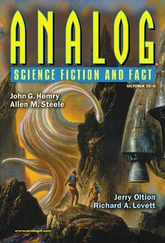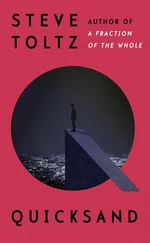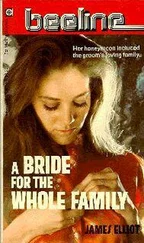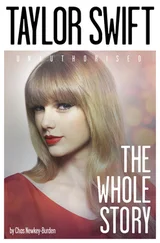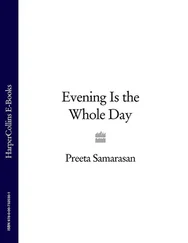We walked around to the other side of the swimming pool. On the brick barbecue the sausages had been incinerated and were withering in the sun.
“Terry,” I said, “what are you doing? Why don’t you give up crime, go get a normal job somewhere? The cooperative is never going to work, you must know that. Besides, Harry’s mad,” I added, though I knew I wasn’t convinced. The truth was, as I gazed at Terry’s wild eyes I began to suspect that my brother was the real madman and Harry just an old goat with strange ideas.
“What about you?” Terry asked.
“What about me?”
“What are you doing with your life? I’m not the one trapped in a cage- you are. I’m not the one living in a town I hate. I’m not the one ignoring his potential. What’s your destiny, mate? What’s your mission in life? You don’t belong in that town. You can’t hang around there forever. You can’t protect Mum from Dad, or from death. You’ve got to cut them loose. You’ve got to get out of there and live your life. My life is mapped out, more or less. But you- you’re the one sitting around doing nothing.”
That struck me cold. The little bugger was right. I was the one trapped. I had no clue where to go or what to do. I didn’t want to get locked into some grind, but I wasn’t a criminal either. Plus I had made that unbreakable bond with our mother, and I was beginning to strain against it.
“Marty, have you thought about university?”
“I’m not going to university. I didn’t even finish school.”
“Well fuck, mate, you have to do something! Why don’t you start by leaving that shit hole of a town?”
“I can’t leave town.”
“Why the hell not?”
Against my better judgment, I told Terry about the promise I had made. I explained that I was stuck in no uncertain way. Viciously and immovably stuck. What could I do? Leave my mother alone to die with my unfeeling father? The woman who read to me while I lay in a coma all those years? The woman who had risked everything for my sake?
“How is she?” Terry asked me.
“She’s OK, considering,” I said, but that was a lie. Impending death was having a strange effect on her. Occasionally she crept into my room at night and read to me. I couldn’t stand it. The sound of a voice reading a book reminded me of that other prison, that rotten living death: the coma. Sometimes in the middle of the night when I was sound asleep I was woken by a violent shaking. It was my mother, wanting to make sure I hadn’t fallen into another coma. It really was impossible to sleep.
“What are you going to do?” Terry asked. “Stay there until she’s dead?”
It was an awful thought, both that she would one day die and that I’d made this vow that was now strangling me. How could I go on in this way without succumbing to the ugliest thought: “Hey, Mum. Hurry up and die!”
Terry discouraged me from visiting his house again. At his insistence, we met at either cricket or rugby games, depending on the season. During these games Terry filled me in on the democratic cooperative’s antics: how they changed their modus operandi all the time, never doing the same job twice, or if they did, not doing it in the same way. For instance, once they did two bank jobs in a row. The first was at the end of the day, and they all ran in wearing balaclavas and forced customers and staff facedown on the floor. The next job they pulled at lunchtime, and they wore gorilla masks, spoke only in Russian to each other, and made customers and staff hold hands and stand in a circle. They were fast. They were successful. And above all they were anonymous. It was Harry’s idea for the gang to learn a couple of languages- not the whole thing, but just the kind of vocabulary you’d need in a robbery situation: “Get the money,” “Tell them to put their hands up,” “Let’s go,” that kind of thing. Harry really was a genius at throwing people off the scent. It was a mystery how he’d spent so long in jail. He also found a couple of police informers and fed them misinformation. And the one or two enemies they had to deal with from Harry’s old days, they attacked when they were most vulnerable: when they had more than two items on the stove.
The only problem was that the establishment of the democratic cooperative, the fulfillment of Harry’s dream, seemed to inflame his world-class paranoia. You couldn’t get behind him! He’d slide against the wall, and if he was ever in an open space, he’d spin like a top. He panicked in crowds, and when he was caught up in the throng, he’d really go into violent spasms. The funniest thing was when he had to take a piss outdoors. He wouldn’t go behind a tree, because his back was exposed; Harry leaned against the tree facing out, one hand on his dick, the other holding a.45. And at home he rigged up bells and ropes so you couldn’t enter his bedroom without setting off an alarm. He checked the newspapers every day to see if he got a mention. He flicked through them frantically, eyes bulging.
“Don’t underestimate the value of the daily news,” Harry said to me once. “It’s saved many a wanted man’s skin. The police are always trying to prove they’re making progress: ‘Oh, we have a sighting here, we’ve picked up this clue or that one.’ Put that together with the public’s indefatigable hunger for news that has nothing to do with them, and you’ve got the best thing for a fugitive out on a crime spree. You think I’m paranoid? Check out the general public. They demand up-to-date news on investigations because they think the authorities are holding out on them, hiding information about criminals who are in their backyards with their guns and cocks out, ready to party.”
He accused the others in the cooperative of harboring mercenary thoughts. He said he could smell greed on all of them; he said it clung to them like beads of sweat. “A thousand dollars in your hand isn’t good enough?” he’d scream. Harry predicted that their little Greek senate would go down in flames. Democracy in crime was turning out no different from democracies everywhere: a sublime idea in theory, soiled by the reality that deep down nobody really believes that all men are created equal. The cooperative was getting into constant disputes over the share of profits and the distribution of dirty jobs like filing the serial numbers off a thousand stolen cameras. Its members were learning that, like their manifestations in whole countries, profit-driven democracies create imbalances, encourage greed and impatience, and because no one’s going to vote to be the one who cleans the public toilets, lead to faction-splitting and ganging up on the weakest and most unpopular members. Moreover, Harry smelled that anonymity was frustrating them. That’s how Harry discovered everything, through his nostrils. “You’re the worst!” he’d say, pointing at Terry.
“Mate, I didn’t say a word,” Terry said.
“You didn’t have to! I can smell it!”
And maybe he could smell it. What did Harry once say about long-term paranoia earning a man telepathic powers? Maybe he was really onto something there. Maybe Harry was seeing the future. Or maybe he was just stating the bloody obvious: that my brother had ideas, and those ideas were going to destroy him and everyone along with him. To be honest, though, it wasn’t obvious to me then. I just didn’t see it coming. Well, maybe Bob Dylan was wrong. Maybe you do have to be a weatherman to know which way the wind blows.
Normally, there is your life, and you turn on the television and there is news, and no matter how grave it is, or how deep in the toilet the world has fallen, or how relevant the information might be to your own existence, your life remains a separate entity from that news. You still have to wash your underpants during a war, don’t you? And don’t you still have to fight with your loved ones and then apologize when you don’t mean it even when there’s a hole in the sky burning everything to a crisp? Of course you do. As a rule, there’s no hole big enough to interrupt this interminable business of living, but there are exceptions, grim instances in the lives of a few select unlucky bastards when the news in the papers and the news in their bedrooms intersect. I tell you, it’s a daunting and appalling moment when you have to read the newspapers to find out about your own struggle.
Читать дальше

